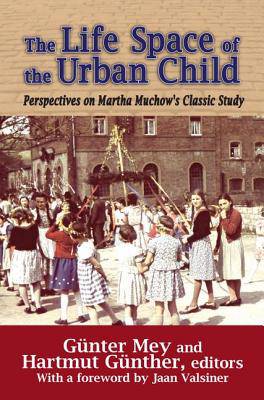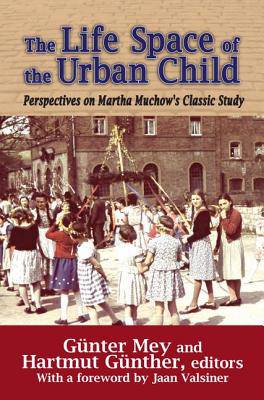
- Afhalen na 1 uur in een winkel met voorraad
- Gratis thuislevering in België
- Ruim aanbod met 7 miljoen producten
- Afhalen na 1 uur in een winkel met voorraad
- Gratis thuislevering in België
- Ruim aanbod met 7 miljoen producten
Omschrijving
The heart of this book is the translation of The Life Space of the Urban Child, written in 1935 by Martha and Hans Heinrich Muchow. Life Space provides a fresh look at children as actors and how they absorb their city environments. It uses an empirical base connected with theories about the worlds in which children live.
The first section provides historical background on Muchow's study and the author. The second section presents the translation of the Life Space study, as well as comments from an environmental psychologist's perspective. The third section reviews the study's theoretical foundations, including the concept of "critical personalism," the perspectives of phenomenology, and the notion of Umwelt (environment). The last section addresses various lines of research developed from the Life Space study, including Muchow's work in describing children in urban environments, methodological approaches, and the significance of space in social science and educational contexts.
The manner in which Martha Muchow conducted her studies is itself of note. She obtained access to the children in their environments and combined observation with cartographies and essays produced by the children. This approach was new at the time and continues to inspire researchers today. This volume is the latest work in Transaction's History and Theory of Psychology series.
Specificaties
Betrokkenen
- Auteur(s):
- Uitgeverij:
Inhoud
- Aantal bladzijden:
- 328
- Taal:
- Engels
- Reeks:
Eigenschappen
- Productcode (EAN):
- 9781412854917
- Verschijningsdatum:
- 30/05/2015
- Uitvoering:
- Hardcover
- Formaat:
- Genaaid
- Afmetingen:
- 157 mm x 234 mm
- Gewicht:
- 576 g

Alleen bij Standaard Boekhandel
Beoordelingen
We publiceren alleen reviews die voldoen aan de voorwaarden voor reviews. Bekijk onze voorwaarden voor reviews.












